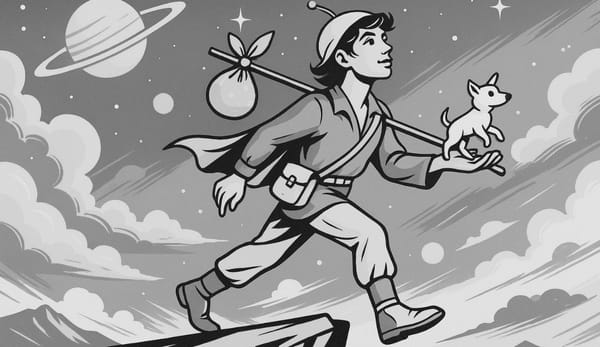Punishing Yourself for the Mistakes of Others

How often do we let ourselves get swept up in anger, forgetting that, more often than not, it only leaves us with the mess? We’re punishing ourselves for what someone else has done. The cost? A lot more than the issue at hand – it can be our health, our relationships, even our self-respect.
In this article, I share a personal journey through an “innocent” childhood rebellion – sneaking onto a bus without a ticket – and how a simple message over the driver’s head opened my eyes to a different way of seeing anger. It read: “To get angry is to punish yourself for the mistakes of others.” That thought stayed with me as I grew, and over the years, I’ve come to realize that dealing with anger goes far beyond swallowing our frustrations or waiting for things to change on their own.
Anger, I’ve discovered, is less about power and more about weakness – a flashing warning light that there’s a gap between our expectations and reality. And if we don’t do something, it’ll keep flashing louder, pushing us into action – or regret.
For those of you who feel trapped in a loop of anger, reacting without fully understanding its source, this article is for you. I’ll share the steps I’ve come to rely on to “decode” anger and turn it into a force that works for me, rather than against me. Join me in this journey – one that begins not with others’ mistakes, but with our own expectations.
My Internal Discussion About Anger
When I was around eight years old, I ran away from school to ride the bus to the neighboring town. Without a ticket.
As I traveled, wondering how long it would take before someone caught me without a fare, I saw a wise saying posted above the driver’s head. It read:
“To get angry is to punish yourself for the mistakes of others.”
Something clicked for me at that moment, a realization that situations where I felt anger could actually be handled in different ways.
Of course, at that age, I hadn’t encountered many reasons for anger. The dominant feeling back then was “carefree childhood.”
These days, however, I’ve developed a solid, deep-rooted friendship with anger.
I often recall that saying, but I don’t feel it fully captures the right approach. Over time, I gathered a lot more “wise thoughts” and began to realize that there’s no need to rely on, get angry about, or console myself over “other people’s mistakes.” As adults, we have to take responsibility for our own emotions.
And so, I started to reflect. In fact, I began a bit of an internal dialogue with myself:
Boril 1: What does it even mean to get angry? Why do we get angry?
Boril 2: We get angry when things don’t go our way. When things don’t work out or aren’t how we want them to be.
Boril 3: So, there’s a gap between expectations and reality, right?
Boril 4: In other words, anger is showing us that there’s a problem. A mismatch.
Boril 5: Exactly. So, anger is like a warning light on a car’s dashboard.
Boril 6: Clearly, what’s important isn’t that the light is on, but the information it conveys.
Boril 7: And what does it tell us?
Boril 8: Are you not listening to the others? It’s telling us there’s a gap between our expectations and reality.
Boril 9: So, when we feel anger, what should we do?
Boril 10: Break furniture and scream. Slam doors. End relationships and friendships. Punch people.
Boril 11: But how does that bring reality any closer to our expectations?
Boril 12: That depends on what our expectations are, what we want to achieve, and what the actual situation is.
Boril 13: Stop being ridiculous. Here’s what needs to be done:
- Understand what anger is signaling – specifically, the gap between expectations and reality.
- Decide what you want to achieve; that is, what situation should be happening that currently isn’t.
- Determine whether you can change the reality and if you want to.
- If so, take action (either immediately or after making a plan).
- If, for any reason, you can’t change reality, then you need to change your expectations.
Boril 14: Why?
Boril 15: Because if you don’t bring reality and expectations closer together, that feeling of anger will stay with you, since it’s signaling that gap. It might even intensify, evolving beyond a warning. Like the light on the dashboard exploding.
Boril 16: You’re making this way too complicated. No one’s going to read this article.
Boril 17: Do you realize that anger is an emotion we experience when we can’t or haven’t yet changed a situation?
Boril 18: Yeah, that’s exactly what we’re talking about.
Boril 19: No, he means something else – that when we feel anger, it’s actually showing us we feel weak. Either we can’t or haven’t yet done something. There’s even fear lurking underneath.
Boril 20: True. A lot of people think of anger as a show of strength – dominant, loud, aggressive. But actually, it’s just an amplified signal telling us that we either can’t or haven’t yet done something. In other words, it shows that we’re weak (at least for the moment).
Boril 21: There’s nothing wrong with being weak.
Boril 22: Who said there was anything wrong? Just don’t inflate your ego and torment others, thinking you’re some angry boss or ruler when you’re actually showing your inability to handle the situation.
Boril 23: I like yelling at others.
Boril 24: Then you clearly like showing your vulnerability.
Boril 25: But when I’m angry, I feel strong and powerful.
Boril 26: Only you feel that way. Really, you’re just annoying people, stressing them out, and making a lot of noise. And you’re also doing some pretty foolish things.
Boril 27: Alright, so what should I do when I’m angry?
Boril 28: Let’s sum it up:
First: Remind yourself that anger is a signal, not energy. It gives you information, not power.
Second: Find the issue, identify where things aren’t going the way you want.
Third: If you can change the situation to your advantage, act on it. If you can’t, adjust your expectations and goals.
Boril 29: Well, that’s simple.
Boril 30: It’s simple, but not easy.
—
After this internal conversation, I could never look at anger the same way – at least when it came to my relationship with it.
And this lasted until the next time I yelled at the kids.
That’s when I had one last (for now) insight:
That’s what I’m working on now.





